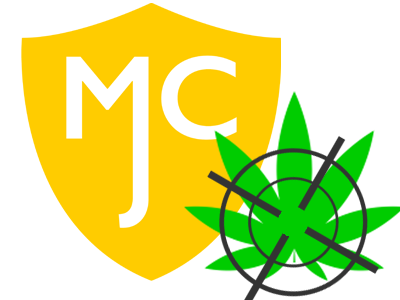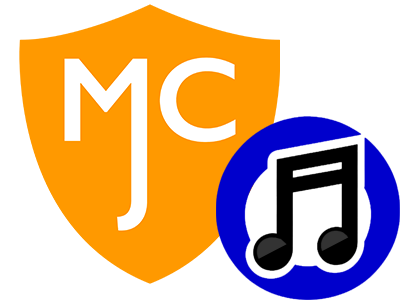
Marijuana detoxification is a critical process for individuals looking to eliminate THC and its metabolites from their bodies. As the most commonly used illegal drug in the US, marijuana contains the psychoactive compound THC, which can have negative effects on both our minds and bodies. In this comprehensive guide, we will provide valuable information on effective methods, detox products, and the detox process itself, helping you navigate your way to a clean and healthy lifestyle.
Key Takeaways:
- Detoxification is the process of removing THC and its metabolites from the body.
- Marijuana detox methods aim to eliminate drug residues through the body’s natural elimination processes.
- Understanding the effects of marijuana and the risks of detoxing alone is crucial for a successful detoxification process.
- Professional assistance is important for creating personalized detox plans and providing support throughout the detox journey.
- Seeking professional help and utilizing detoxification products can ensure a safe and effective marijuana detox.
Understanding Marijuana Detox
Marijuana detox is a vital process in removing drug residue from the body. Toxins from marijuana, such as THC, can linger in the system even after discontinuing use. Therefore, detoxification methods are crucial for eliminating these harmful substances. By understanding the physiological system and the detection of THC metabolites, individuals can effectively detox from marijuana.
The process of detoxification involves the body’s natural mechanisms for eliminating toxins. Primarily, THC is stored in fat cells, which can make it difficult to fully eliminate. However, through various detoxification methods, individuals can aid in the expulsion of THC and its metabolites. This can include diet modifications, exercise routines, and other toxin elimination techniques.
It’s important to recognize the importance of THC detection when undergoing marijuana detox. Drug tests can detect the presence of THC and its byproducts, which can impact the success of the detoxification process. Understanding the detection windows and how long THC can be identified in the body can help individuals navigate through their detox journey.
| Detoxification Methods | Effectiveness | Detoxification Process |
|---|---|---|
| Diet modifications | Varies based on individual’s metabolism | Promotes toxin elimination through enhanced digestion |
| Exercise routines | Improves metabolism and fat burning | Accelerates toxin removal through sweat and increased blood circulation |
| Toxin elimination techniques | Varies based on method used | Targets specific toxins for effective removal from the body |
By understanding the principles of marijuana detox, individuals can take a proactive approach in eliminating THC and its metabolites from their bodies. With the knowledge of drug residue removal, detoxification methods, toxin elimination, THC detection, and the physiological system, individuals can ensure a comprehensive and successful detoxification process.
Effects of Marijuana
Marijuana, also known as weed or cannabis, has various effects on the body and mind. The psychoactive compound in marijuana, known as THC (tetrahydrocannabinol), is responsible for these effects. THC affects the brain’s physiological structure and can result in altered perception, mood changes, and impaired memory.
When marijuana is consumed, THC enters the bloodstream and binds to cannabinoid receptors in the brain. This interaction leads to the release of dopamine, a neurotransmitter associated with pleasure and reward. As a result, individuals may experience feelings of euphoria and relaxation.
However, marijuana use can also have negative effects. Chronic use of marijuana has been linked to long-term cognitive impairment, particularly in memory and learning. It can also affect coordination, reaction time, and judgment, which can be dangerous when operating machinery or driving.
In addition to its psychoactive effects, marijuana use can also have physical effects. These can include increased heart rate, bloodshot eyes, dry mouth, and increased appetite, commonly referred to as “the munchies.”
Table: Effects of Marijuana
| Effect | Description |
|---|---|
| Euphoria | Marijuana can induce feelings of happiness and relaxation. |
| Altered perception | Marijuana can distort the perception of time, space, and senses. |
| Impaired memory | Chronic marijuana use can lead to difficulties in memory and learning. |
| Coordination and reaction time | Marijuana can affect motor skills, coordination, and reaction time. |
| Increased heart rate | THC can cause an increase in heart rate shortly after consumption. |
| Red eyes | Marijuana use can lead to bloodshot, red eyes. |
| Dry mouth | Marijuana can cause dryness in the mouth and throat. |
| Increased appetite | THC can stimulate the appetite, often leading to increased food consumption. |
Marijuana Dependence and Withdrawal Symptoms
Marijuana dependence is a real possibility for individuals who regularly use this drug. When someone decides to quit marijuana, they may experience withdrawal symptoms as the body adjusts to the absence of THC. These symptoms can range from mild to severe and can include anxiety, depression, irritability, insomnia, and cravings for marijuana.
The detoxification process plays a crucial role in managing these withdrawal symptoms. By understanding the biological mechanisms of marijuana withdrawal, we can develop effective detoxification regimens to support individuals through this challenging phase. These regimens aim to eliminate drug traces from the body and restore the physiological balance.
Marijuana Withdrawal Symptoms
Marijuana withdrawal symptoms can vary from person to person and may depend on factors such as the frequency and duration of marijuana use, as well as an individual’s overall health and well-being. Some individuals may experience only mild symptoms that last for a few days, while others may have more severe symptoms that persist for several weeks.
Withdrawal symptoms can range from mild to severe and can include anxiety, depression, irritability, insomnia, and cravings for marijuana.
Understanding these withdrawal symptoms is essential for providing the right support during the detoxification process. By addressing these symptoms effectively, individuals can increase their chances of successfully completing the detoxification regimen and achieving a marijuana-free lifestyle.
Detoxification Regimen for Marijuana Withdrawal
During the detoxification process, the body naturally eliminates drug traces and restores its equilibrium. A well-designed detoxification regimen can help manage withdrawal symptoms and support individuals on their journey to a drug-free life.
A detoxification regimen for marijuana withdrawal may include various components, such as:
- Medical supervision and support
- Nutritional guidance
- Exercise and physical activity
- Alternative therapies, such as acupuncture or meditation
- Support groups or counseling
It’s important to remember that everyone’s detoxification needs may differ, and personalized regimens can significantly improve the chances of success. Consulting with healthcare professionals experienced in marijuana detoxification is crucial for creating an effective detox plan tailored to individual needs.
Marijuana Detox Methods and Tips
Detoxification from marijuana can be a challenging process, but there are various methods and tips that can aid in the process. Whether you’re looking for a weed detox, detoxification solution, or herbal remedy, here are some strategies to consider:
1. Hydrate and Eat a Healthy Diet
Drinking plenty of water and clear liquids can help flush out toxins from your body. Staying hydrated is crucial during the detoxification process. Additionally, consuming a healthy diet rich in fruits, vegetables, and fiber can support your body in eliminating toxins.
2. Exercise Regularly
Regular exercise can help speed up your metabolism and aid in the elimination of THC from your system. Engaging in physical activities such as jogging, swimming, or practicing yoga can also help reduce stress and improve overall well-being during the detoxification process.
3. Consider Herbal Remedies and Detoxification Solutions
There are various herbal remedies and detoxification solutions available that claim to aid in marijuana detox. However, it is important to exercise caution and consult with a healthcare professional before using any of these products. They can provide guidance on safe and effective options tailored to your specific needs.
“Detoxification doesn’t have to be a daunting process. By following these tips and incorporating healthy habits into your lifestyle, you can support your body’s natural detoxification abilities and successfully navigate the marijuana detox journey.
Remember, the detoxification process varies from person to person, and it may take time for THC to completely leave your system. Therefore, it’s essential to be patient and prioritize self-care throughout the detox process. Consider seeking support from groups such as Marijuana Anonymous, where you can connect with others who are also on a detox journey.
Table: Comparison of Detox Methods
| Detox Method | Advantages | Disadvantages |
|---|---|---|
| Water Detox | Simple and affordable | May not be as effective for heavy users |
| Detox Drinks | Specifically formulated to eliminate toxins | Can be expensive |
| Herbal Remedies | Natural ingredients with potential cleansing properties | Efficacy varies, may not work for everyone |
| Exercise | Accelerates metabolism and aids in toxin elimination | May not be sufficient on its own |

Risks of Detoxing from Marijuana on Your Own
Detoxing from marijuana without professional assistance can come with significant risks. It is important to understand these risks before embarking on a solo detox journey. The withdrawal symptoms associated with marijuana detox can be uncomfortable and challenging to manage alone, increasing the likelihood of relapse. Additionally, there are physical risks involved, such as stomach issues and dehydration, that can arise during the detox process.
One of the risks of detoxing from marijuana on your own is the potential for relapse. Withdrawal symptoms, including anxiety, depression, irritability, insomnia, and cravings, can be intense, making it difficult to stay on track without professional support. Relapse can not only jeopardize the detoxification process but also reinforce patterns of marijuana dependence.
Another risk is the physical toll that detoxing from marijuana can take on the body. Stomach issues, such as nausea and loss of appetite, are common during the detox process. Dehydration is also a concern, as individuals may experience increased sweating and urination as their bodies eliminate THC byproducts. Seeking professional assistance can help individuals navigate these physical challenges and ensure their safety throughout the detoxification process.
| Risks of Detoxing from Marijuana on Your Own |
|---|
| Increased risk of relapse |
| Potential for intensified withdrawal symptoms |
| Stomach issues and loss of appetite |
| Dehydration from increased urination and sweating |
Marijuana Detox Kits, Cleanses, & Pills
When it comes to detoxifying from marijuana, there are various kits, cleanses, and pills available on the market that claim to help individuals eliminate THC from their bodies and pass drug tests. These products may seem like a convenient solution, but it’s important to exercise caution and consider their safety and efficacy.
Many marijuana detox kits and cleanses consist of detoxification drinks or pills that are marketed as a quick and easy way to rid the body of THC. These products often contain ingredients like herbs, vitamins, and minerals that are believed to aid in the detoxification process. However, the effectiveness of these products is frequently debated, and there is limited scientific evidence to support their claims.
Furthermore, some marijuana detox kits and cleanses can have uncomfortable side effects. These can include nausea, diarrhea, headaches, and excessive urination. It’s crucial to carefully read the instructions and warnings of any detox product before use and consult with a healthcare professional if you have any concerns or underlying medical conditions.
| THC cleanse products | Safety | Efficacy | Side Effects |
|---|---|---|---|
| Detoxification drinks | Varies | Debatable | Possible nausea, diarrhea |
| Detoxification pills | Varies | Debatable | Possible headaches, excessive urination |
In conclusion, while marijuana detox kits, cleanses, and pills may seem like a convenient solution for those looking to eliminate THC from their bodies, it’s important to approach them with caution. The safety and efficacy of these products are often unclear, and they can have uncomfortable side effects. To ensure a safe and effective detoxification process, it is recommended to seek professional advice and assistance from healthcare professionals who can provide personalized detox plans and guidance.

Remember, detoxification is a complex process that involves more than just using products. Drinking plenty of water, consuming a healthy diet, exercising regularly, and seeking support from groups such as Marijuana Anonymous are important components of a successful marijuana detox. By taking a comprehensive approach and seeking professional help, you can safely and effectively detoxify your body and achieve a marijuana-free lifestyle.
What Do Marijuana Drug Tests Look For?
When undergoing a marijuana detox, it is important to understand what drug tests for marijuana look for. The most common types of drug tests for marijuana are urine tests, hair follicle tests, and saliva tests. Each test has its own detection window and can provide different insights into THC elimination.
Urine Test
The urine test is the most commonly used drug test for marijuana. It detects the presence of THC and its metabolites in the urine. The detection window for a urine test can vary depending on factors such as frequency and duration of marijuana use. THC can be detected in urine for a few days to several weeks after use.
Hair Follicle Test
A hair follicle test can detect marijuana use over a longer period compared to a urine test. This test analyzes the presence of THC and its metabolites in the hair shaft. THC can be detected in hair follicles for up to 90 days after use, making it a more comprehensive test for long-term marijuana use.
Saliva Test
The saliva test, also known as an oral fluid test, can detect recent marijuana use. It analyzes the presence of THC in the saliva. The detection window for a saliva test is generally within a few hours to a few days after use. This test is often used for roadside and workplace testing due to its quick and non-invasive nature.
Understanding the basics of marijuana drug tests is essential for individuals undergoing a detoxification process. It allows them to have a better understanding of the duration of detection and the effectiveness of their detox efforts.
The Importance of Professional Marijuana Detox
When it comes to detoxifying from marijuana, seeking professional assistance is of utmost importance. A structured detoxification regimen, tailored to your individual needs, can significantly increase the chances of a successful detox. Professionals in the field of marijuana detox can guide you through the process, monitor your progress, and provide essential support and guidance along the way.
One key advantage of professional marijuana detox is access to detoxification products specifically designed for THC detoxification. These products are formulated to help eliminate THC and its metabolites from your body efficiently. By working with healthcare professionals, you can ensure that you are using the most effective detoxification products available.
Additionally, professionals can provide additional treatments to manage withdrawal symptoms that may arise during the detox process. Withdrawal symptoms can be uncomfortable and challenging to manage on your own. By having access to medical resources, you can receive the necessary support to mitigate the impact of these symptoms, making the detoxification process more manageable.
Overall, professional marijuana detox offers a comprehensive approach to detoxification, combining personalized detox plans, detoxification products, and additional treatments. By seeking professional help, you can enhance the effectiveness and safety of your detox journey, increasing the likelihood of achieving a marijuana-free lifestyle.

Table: Benefits of Professional Marijuana Detox
| Benefits | Description |
|---|---|
| Personalized Detox Plans | Healthcare professionals create tailored detox plans to address your specific needs and goals. |
| Monitoring and Support | Professionals monitor your detox progress and provide essential guidance and support throughout the process. |
| Access to Detoxification Products | Experts can recommend detoxification products designed to enhance THC elimination from the body. |
| Additional Treatments | Medical resources are available to help manage withdrawal symptoms and ensure a more comfortable detox experience. |
Conclusion
The detoxification process of eliminating THC and its metabolites from the body is a complex journey. To ensure a safe and effective detox, it is crucial to seek professional assistance. We understand the importance of personalized detox plans, support, and guidance in achieving a marijuana-free lifestyle.
By understanding the effects of marijuana and the risks of detoxing alone, individuals can make informed decisions about their detox process. Professional healthcare providers can create tailored detox plans, monitor progress, and recommend detoxification products and solutions. This comprehensive approach increases the likelihood of a successful detoxification process.
Embarking on a THC cleansing journey can greatly improve physical and mental well-being. Detoxifying the body from marijuana is a significant step toward a healthier lifestyle. By taking advantage of the available detoxification solutions and processes, individuals can achieve their goal of removing THC from their system.
FAQ
What is marijuana detox?
Marijuana detox refers to the process of eliminating THC from the body.
How is THC stored in the body?
THC is stored in fat cells and can remain in the body even after marijuana use has ceased.
What are the effects of marijuana on the body and mind?
THC affects the brain and can result in altered perception, mood changes, and impaired memory.
Is marijuana addictive?
Yes, marijuana can be addictive and quitting can lead to withdrawal symptoms such as anxiety and depression.
What are some tips for a successful marijuana detox?
Drinking plenty of water, exercising regularly, and seeking support from groups such as Marijuana Anonymous can aid in the detoxification process.
Are there risks of detoxing from marijuana alone?
Yes, the greatest risk is relapse, and there can also be physical risks such as stomach issues and dehydration.
Are marijuana detox kits and cleanses safe and effective?
Their safety and efficacy are often unclear, and they can have uncomfortable side effects.
What do marijuana drug tests look for?
Marijuana drug tests typically look for the presence of THC and its byproducts in the body.
Why is professional assistance important for marijuana detox?
Healthcare professionals can create personalized detox plans, monitor the detox process, and provide support and guidance.
















